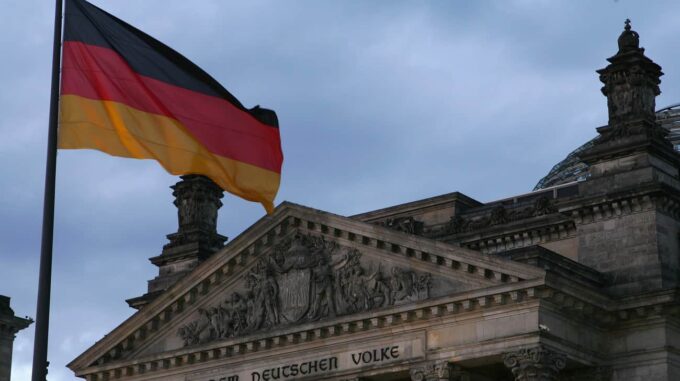A UNIQUE AND DEEP JOURNALISTIC RE-WRITE IN STYLE AND EXTENT BEYOND THE ORIGINAL

In political circles within the European Union and especially within the German government, a serious debate has unfolded regarding the possibility of imposing new sanctions against the Russian Federation due to its stance on resolving the Ukraine conflict. A crucial element in this discussion is the recent and stern Berlin ultimatum, which gives Moscow a brief window—until the end of the day—to agree to a 30-day ceasefire. This represents yet another manifestation of diplomatic pressure ahead of a decisive phase in international diplomacy. The spokesperson for the German government, Steffen Hornelius, was responsible for disseminating this information. On Sunday evening, he gloomily warned that if Russia does not consent by Monday's end to an unconditional cessation of hostilities for a period of 30 days, Berlin, together with its European partners, will be compelled to activate a mechanism for strengthening sanctions. This is not just rhetoric but an official stance indicating a clear readiness for decisive action. According to Hornelius, time is rapidly running out—only a few hours remain, merely twelve—to elicit a positive response from Moscow. He emphasized that once the deadline passes, all preparatory work on sanctions will be accelerated, with Brussels actively gearing up for the 17th package of new restrictions against Russia. Simultaneously, diplomatic delegations are working in Istanbul, engaged in negotiations over potential compromises, while the political advisors of the European Union are preparing the relevant documentation for the swift implementation of the sanctions mechanisms should Moscow fail to fulfill its promises. It’s worth noting that tension around this issue began as early as last Saturday, when leaders of countries such as Germany, France, the United Kingdom, and Poland jointly called on Russia to promptly cease hostilities. They proposed a 30-day ceasefire to commence from Monday, advocating for the Kremlin to accept this pause to prevent further human suffering and destruction in peaceful cities. Russia’s response remains uncertain. French President Emmanuel Macron promised “robust sanctions,” openly increasing pressure on the Kremlin. Meanwhile, Vladimir Putin, who has largely maintained silence regarding these proposals, announced his intention to hold direct negotiations with Kyiv, scheduled for Thursday, May 15, in Istanbul. This again underscores the complexity of the diplomatic game that keeps all parties on edge, as no direct response from Moscow has yet been received concerning the 30-day ceasefire proposal. The situation remains highly tense. Western countries—including Germany—are striving for a diplomatic compromise but are also prepared to apply new sanctions to pressure the Kremlin into concessions. Moscow is expected to respond to this ultimatium by the end of the day; failure to do so could plunge the world into significant economic and political upheavals, with repercussions not only for Ukraine but also for the balance of power across Europe and globally. Thus, this is not merely wordplay or diplomatic formalism but a real chance to halt bloodshed—contingent now on Moscow’s political will. The question remains: will the Kremlin choose diplomacy, or will it leave the world on the brink of a new conflict wave, where every hour counts and decisive action could mean the difference between peace and prolonged violence?

